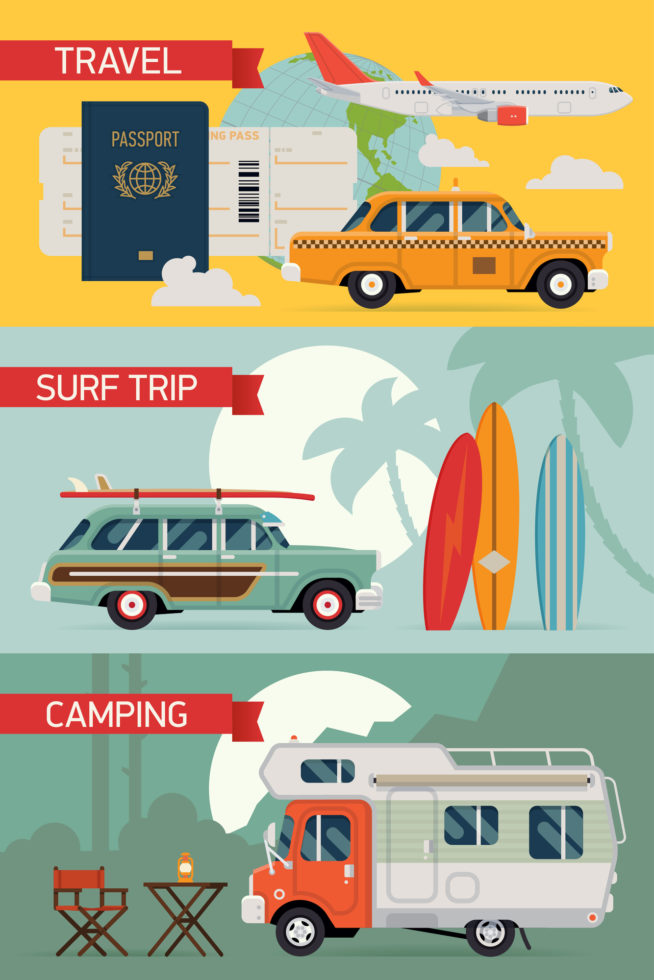
By Jay Bemis | Advertising Systems Inc.
Travel remains one of the most battered industries as a result of the COVID-19 pandemic, with experts predicting that a full recovery for the industry won’t happen until 2022 — if there’s a viable vaccine for the coronavirus later this year or early next.
But Americans tired of shuttering at home are providing some positive early signs for a travel industry recovery.
They are planning short road trips by car. They are causing RV sales and rentals to surge. And, they are booking rooms for late summer or early fall, while hotel rates are low and as those hotels loosen cancellation policies should there be a spike in coronavirus cases at that time of the season.
Sticking Closer to Home
With gasoline prices at historic lows, “Domestic travel, particularly car trips, will be the most popular form of leisure travel this year, and that will depress digital travel sales in 2020 as domestic trips tend to cost less than international travel,” says eMarketer senior analyst Jasmine Enberg.
Her research firm does offer some optimism for digital marketers in the travel industry, though: “Strong growth is expected post-vaccine, resulting in a digital travel sales growth of 21% next year in the US.”
For now, as businesses in many states are still reopening and air travel is considered risky, many Americans are opting for road trips three to five hours from home with possible hotel stays of a night or two.
“Staycations” technically mean staying in one’s own hometown for a vacation, but the three- to five-hour trips also have become part of the staycation vernacular in these pandemic times.
WalletHub, a personal finance website, recently compiled a list of the top staycation destinations for this summer, taking into account such metrics as open-air parks per capita and a locale’s summer weather.
The top five spots on the list are conveniently spread around the country, with Plano, Texas, just north of Dallas, listed as the number-one staycation spot, followed by Boise, Idaho; Tampa, Florida; Charleston, South Carolina, and Lincoln, Nebraska at numbers two through five, respectively.
Road-trippers are urged to check the CDC’s data tracker, municipal and state health departments and local news for coronavirus updates before departing for a staycation and to continue to do so while on the road.
The Wall Street Journal also advises road-trippers to search for hotels with free or flexible cancellation policies: “Sites like Travelocity have filters to find such hotels. Call ahead to parks or businesses you plan to visit to make sure they are open and check which activities are allowed.”
Wary of Hotels? Take an RV
Recreational vehicle dealers are experiencing strong demand for their product, as are those who rent out RVs.
The Chicago Tribune reports that such major manufacturers as Thor and Winnebago Industries ramped up production last month after they had suspended operations during the pandemic.
People wanting to take longer trips see RVs as safer options against the coronavirus.
“They see an RV as a way of getting outside in a safe and secure environment that they can control,” Richard Curtin, an economist at the University of Michigan, told The Tribune. “I think the industry is in a really good place.”
Meanwhile, RVshare, an online “peer-to-peer” rental service akin to Airbnb, told the Chicago newspaper that business is booming across its 100,000 listings countrywide, with bookings for RV rentals up 30% the second week in May compared with the same period last year.
Feeling Risky? Vegas, Maybe
With airfares low and hotel room rates in the lower double digits, the Mojave Desert may be a destination to consider right now.
MGM Resorts International announced last week, after reopening its first three Las Vegas properties — Bellagio, MGM Grand and New York-New York — that it will add several more in the weeks ahead, including Luxor, The Shoppes at Mandalay Bay Place and ARIA on June 25 and Mandalay Bay, Four Seasons Las Vegas on July 1. It also reopened Excalibur late last week.
Evan Weiss, chief operating officer of LW Hospitality Advisors, explained how Las Vegas can offer such rock-bottom room rates at this time.
“If you want to induce someone to come to Miami, you still really need the traveler to buy the room,” Weiss told Skift, a marketing group that caters to the travel industry.
“In Vegas, they need you to pay for the room less to still come in and spend money. They can afford to break even or even lose a little on the room in the hopes that you sit down at the table and drop some money or go to bars or a show.”
